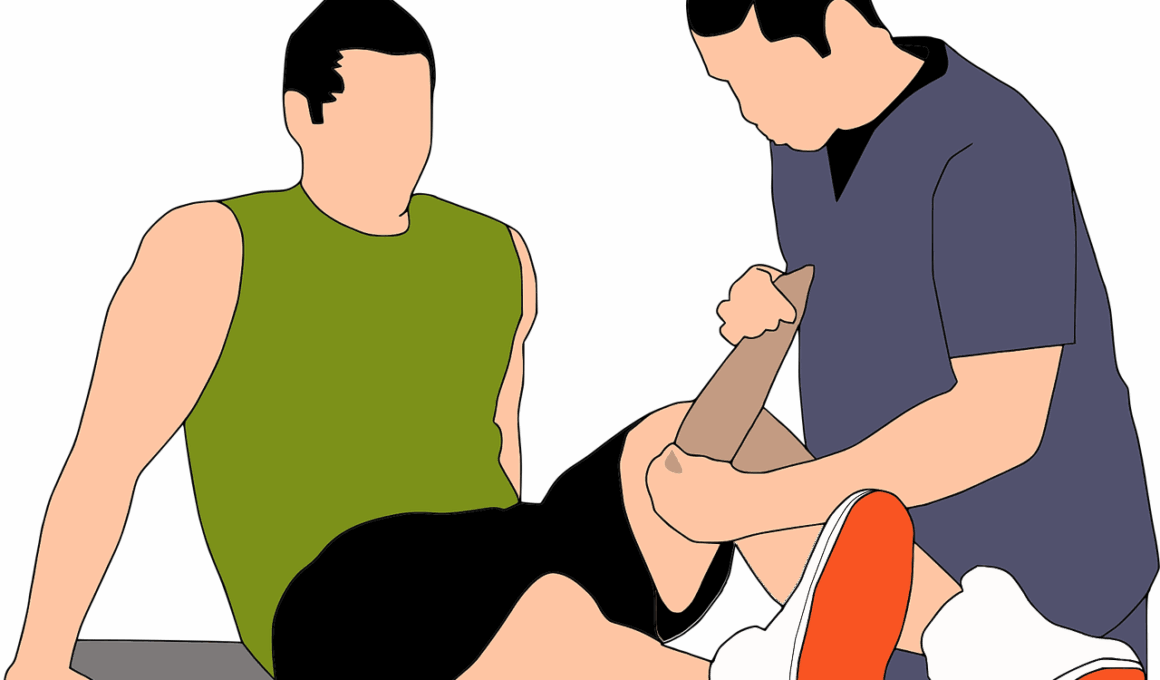Cultural Differences in Perceptions of Injury and Recovery
The experience of injury in sports often involves a complex interplay of physical, psychological, and cultural factors. Different cultures can significantly influence how athletes perceive and respond to injuries. In some cultures, an injury may be seen as a personal failure, leading to feelings of shame and disappointment. Conversely, in other cultures, injury might be viewed as a natural part of the sports journey, fostering resilience. Such perspectives impact not only the emotional responses but also the recovery process. For example, cultures that emphasize collectivism may promote a supportive environment during recovery, stressing community involvement. On the other hand, individualistic cultures might lead to athletes focusing more on their personal healing without seeking help. Understanding these cultural disparities is crucial for sports psychologists aiming to provide effective support tailored to athletes’ backgrounds.
Research shows that athletes from different cultural backgrounds often react uniquely to injury. Factors such as societal expectations, stigmatization of failure, and traditional beliefs play key roles. In many Western cultures, there is a strong emphasis on competition, which may cause athletes to hide injuries or minimize their significance. This behavior can lead to longer recovery times. In contrast, Eastern cultures might promote a mind-body connection, leading athletes to approach recovery holistically. Practices such as mindfulness and meditation may be more prevalent in these cultures, potentially facilitating improved recovery outcomes. By understanding cultural influences, sports professionals can better address the needs and concerns of athletes. Customizing recovery programs that align with athletes’ cultural values is essential for effective rehabilitation.
Cultural Attitudes Towards Injury
Many sports psychologists acknowledge that cultural attitudes toward injury significantly impact recovery processes. Cultures that prioritize mental toughness and resilience may inadvertently pressure athletes to ignore pain signals and push through injuries. Such attitudes can foster a culture of silence around injury, leading to detrimental mental health outcomes. In contrast, cultures that value open communication about physical and mental well-being encourage athletes to express their struggles healthily. These open discussions can lead to more effective recovery strategies and promote a healthier relationship with injuries. Additionally, the role of gender norms within cultures can further complicate how injuries are perceived. For instance, male athletes may face more pressure to conform to traditional ideals, significantly influencing their injury management. Therefore, recognizing the cultural context surrounding injury is vital in providing holistic care to athletes.
Furthermore, cultural beliefs about healing practices influence recovery attitudes among athletes. Some cultures may rely heavily on traditional healing methods, such as herbal remedies or spiritual interventions, while others may favor western medical approaches like surgery or physical therapy. This divergence can result in confusion or conflict during recovery, especially when medical advice does not align with cultural beliefs. Sports psychologists must navigate these complexities by respecting cultural practices while facilitating effective treatment strategies. Engaging athletes in conversations about their preferred healing methods can create trust and better adherence to recovery protocols. For example, an athlete who believes in the power of acupuncture may benefit more from a treatment plan that integrates such practices rather than a strictly clinical approach. Overall, cultural sensitivity is critical in enhancing recovery and rehabilitation in sports psychology.
Family Influence on Recovery
Family plays a pivotal role in shaping athletes’ responses to injury. In collectivist cultures, family support during recovery can be integral to an athlete’s psychological well-being. Families often take active roles in the rehabilitation process, offering emotional and practical support that can expedite recovery. Conversely, individualistic cultures may promote independence, where athletes often rely more heavily on personal mechanisms for coping with injury. This can sometimes lead to isolation, impacting mental health. Acknowledging the family dynamics that play into these cultural frameworks enables sports psychologists to develop more tailored interventions. It is essential to consider how family beliefs and involvement influence the athlete’s mindset during rehabilitation.
Moreover, athletes’ perceptions of team dynamics are influenced by cultural backgrounds, affecting their responses to injury. In tightly-knit teams, athletes from collectivist cultures may feel safer sharing their injuries and seeking team support. However, in more competitive environments, individualistic influences may lead to reluctance in admitting vulnerabilities. The dynamics of how an athlete views their team can complicate recovery. Those who feel isolated may struggle more during rehabilitation than those who feel part of a supportive community. Sports psychologists must assess an athlete’s perception of their team dynamics to provide appropriate strategies that enhance recovery and unity. Creating an inclusive atmosphere allows athletes to openly discuss injuries and mental health challenges, facilitating better outcomes.
Building Culturally Competent Practices
Developing cultural competence is essential for sports psychologists working with diverse populations. By understanding various cultural attitudes toward injury and recovery, psychologists can formulate tailored interventions. Training that enhances awareness of cultural variances helps psychologists connect with athletes more effectively. Workshops, continuous education, and community engagement provide opportunities for improvement in cultural sensitivity. Sports organizations should also prioritize supporting mental health resources that reflect cultural backgrounds to cater to diverse athletes effectively. For example, incorporating cultural advisors into treatment protocols may bridge gaps that exist between athletes and their care providers while fostering a deeper understanding of cultural practices surrounding recovery. Empowering athletes through culturally relevant resources aligns mental health treatment and performance goals.
In conclusion, acknowledging the cultural factors in perceptions of injury and recovery is imperative for sports psychologists aiming to promote holistic healing and resilience. Awareness of cultural diversities not only fosters better athlete support but also facilitates a more enriching sporting environment. Through recognition and appreciation of various backgrounds, sports psychologists can construct more effective and supportive recovery plans. As the world of sports continues to evolve, prioritizing cultural competence will serve to enhance athlete performance and overall well-being. A more inclusive approach paves the way for healthier sporting experiences for all involved.


